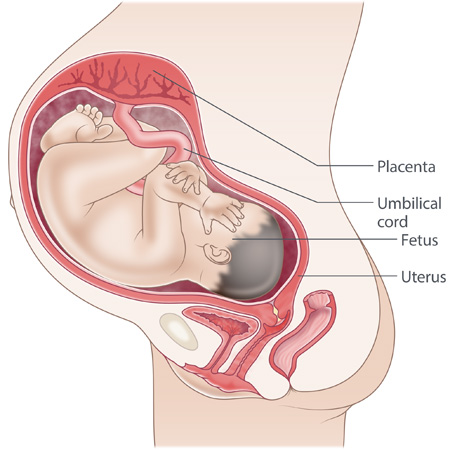
Week 38 of Pregnancy: A Comprehensive Guide
As you enter the final stretch of your pregnancy, your body and baby are undergoing significant changes in preparation for labor and delivery. Week 38 marks a crucial milestone, bringing you closer to meeting your little one. This article provides a comprehensive guide to the 38th week of pregnancy, covering fetal development, maternal changes, common symptoms, and essential tips for expectant mothers.
Fetal Development
By week 38, your baby has reached an impressive level of maturity. Their weight ranges from 6 to 7 pounds, and their length measures approximately 19 to 20 inches. The majority of their organs are fully developed, including their lungs, heart, and digestive system.
- Brain Development: The baby’s brain continues to grow rapidly, with an increase in the number of neurons and connections. This development enhances their cognitive abilities, allowing them to respond to external stimuli and learn from their surroundings.
- Physical Features: The baby’s skin becomes smoother and less wrinkled as they accumulate fat. Their hair continues to grow, and their nails are fully formed. The lanugo, the fine hair that covered their body, gradually disappears.
- Positioning: Most babies have turned head down by this week, preparing for the optimal position for delivery. However, some babies may still be in a breech or transverse position.
Maternal Changes
As your pregnancy progresses, your body undergoes several physiological and hormonal changes:
- Increased Braxton Hicks Contractions: Braxton Hicks contractions, also known as false labor pains, become more frequent and intense in the final weeks of pregnancy. These contractions help prepare your uterus for labor and delivery.
- Pelvic Pressure: The baby’s increased size and weight put pressure on your pelvic floor muscles, leading to a sensation of heaviness or discomfort in your pelvis.
- Swelling: Fluid retention can cause swelling in your hands, feet, and ankles. Elevate your feet and wear comfortable shoes to minimize swelling.
- Back Pain: The weight of your belly and the changes in your posture can strain your back muscles, resulting in back pain.
- Frequent Urination: As the baby’s head presses on your bladder, you may experience increased urinary frequency.
Common Symptoms
During week 38, you may experience a range of symptoms, including:
- Fatigue: The physical and emotional demands of pregnancy can lead to fatigue.
- Insomnia: Difficulty sleeping is common due to discomfort, anxiety, and frequent urination.
- Heartburn: The growing uterus can put pressure on your stomach, causing heartburn.
- Constipation: Hormonal changes and decreased physical activity can slow down your digestive system, leading to constipation.
- Mood Swings: Fluctuating hormones can cause emotional ups and downs.
Essential Tips for Expectant Mothers
- Stay Active: Regular exercise, such as walking or swimming, helps strengthen your muscles and prepare your body for labor.
- Get Enough Rest: Sleep is crucial for both you and your baby. Establish a regular sleep schedule and create a relaxing bedtime routine.
- Eat a Healthy Diet: Nourish your body with a balanced diet rich in fruits, vegetables, whole grains, and lean protein.
- Stay Hydrated: Drink plenty of fluids, especially water, to prevent dehydration.
- Attend Prenatal Appointments: Regular prenatal appointments allow your healthcare provider to monitor your and your baby’s health and provide guidance.
- Pack Your Hospital Bag: Start packing your hospital bag with essential items for you and your baby, such as toiletries, comfortable clothing, and a birth plan.
- Prepare Your Home: Create a comfortable and safe environment for your baby’s arrival. Set up the nursery, install a car seat, and gather necessary supplies.
- Stay Positive: Embrace the final weeks of pregnancy with a positive mindset. Focus on the joy and excitement of meeting your baby soon.
When to Seek Medical Attention
While most symptoms in week 38 are normal, it is important to seek medical attention if you experience any of the following:
- Vaginal Bleeding: Any vaginal bleeding, even light spotting, should be reported to your healthcare provider.
- Severe Abdominal Pain: Intense or persistent abdominal pain can indicate complications.
- Leaking Fluid: Amniotic fluid leakage can be a sign of premature labor.
- Sudden Swelling: Rapid or severe swelling in your hands, feet, or face can indicate preeclampsia.
- Headaches or Vision Changes: Severe headaches or changes in vision can be signs of high blood pressure.
Conclusion
Week 38 of pregnancy is a time of both anticipation and preparation. As you navigate the final stretch, remember to prioritize your health and well-being. By following these tips and staying in close communication with your healthcare provider, you can ensure a smooth and positive pregnancy journey. Embrace the excitement and wonder of this special time as you eagerly await the arrival of your precious little one.